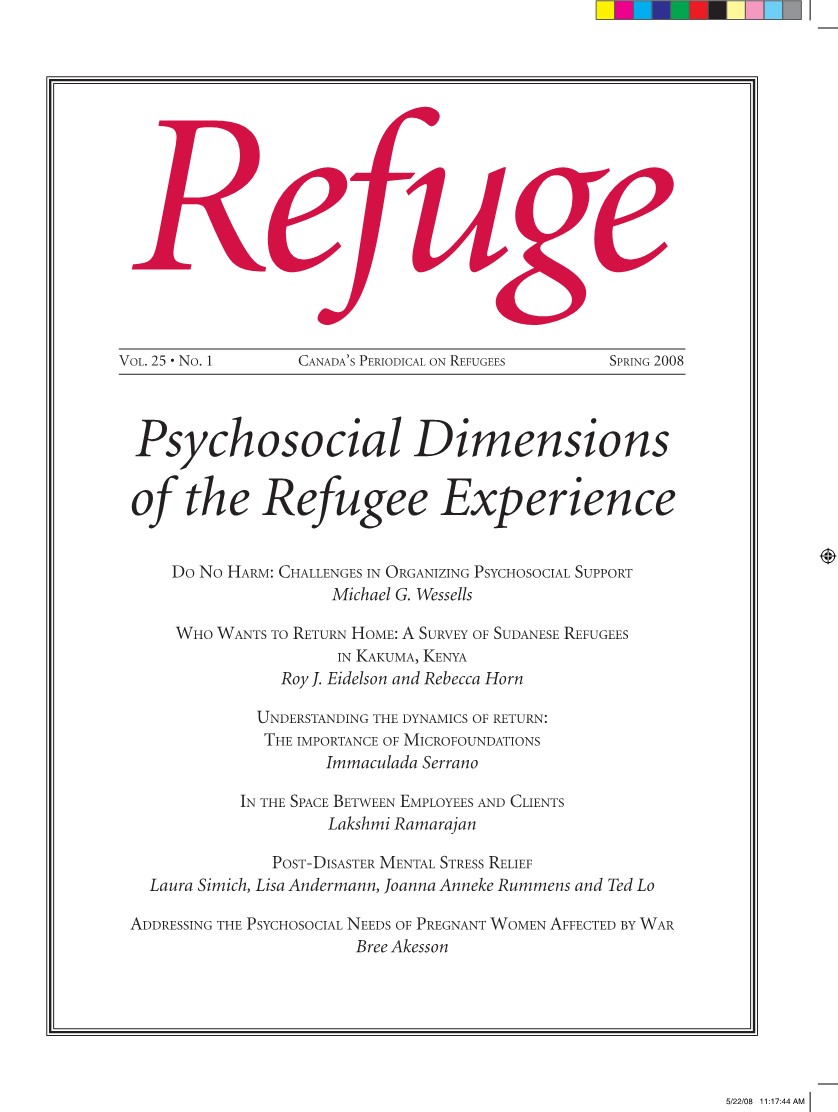Do No Harm: Challenges in Organizing Psychosocial Support to Displaced People in Emergency Settings
DOI:
https://doi.org/10.25071/1920-7336.21392Keywords:
forced migrants, psychosocial assistance, emergencies, harmAbstract
Psychosocial assistance in emergencies plays an important role in alleviating suffering and promoting well-being, but it is often a source of unintended harm. A prerequisite for ethically appropriate support is awareness of how psychosocial programs may cause harm. This paper underscores the importance of attending to issues of coordination, dependency, politicization of aid, assessment, short-term assistance, imposition of outsider approaches, protection, and impact evaluation. With regard to each of these issues, it suggests practical steps that may be taken to reduce harm and maximize the humanitarian value of psychosocial assistance.Metrics
Downloads
Published
How to Cite
Issue
Section
License
Copyright (c) 2008 Michael G. Wessells

This work is licensed under a Creative Commons Attribution-NonCommercial 4.0 International License.
Refuge authors retain the copyright over their work, and license it to the general public under the Creative Commons Attribution-Non Commercial License International (CC BY-NC 4.0). This license allows for non-commercial use, reproduction and adaption of the material in any medium or format, with proper attribution. For general information on Creative Commons licences, visit the Creative Commons site. For the CC BY-NC 4.0 license, review the human readable summary.







